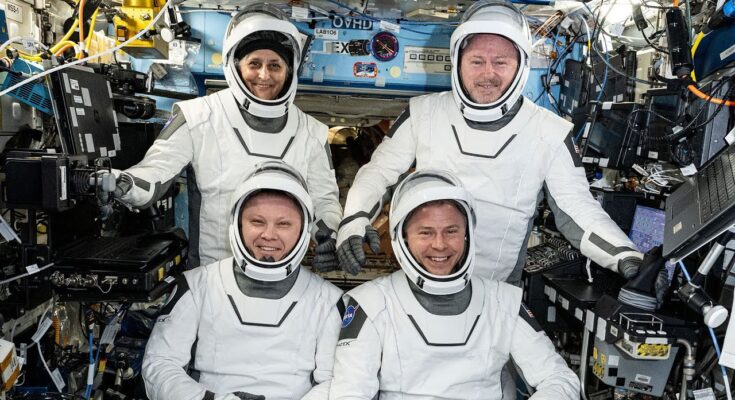In the exciting world of space exploration, astronauts play a crucial role in conducting experiments, maintaining equipment, and pushing the boundaries of human knowledge. However, spending an extended period of time in space can have profound effects on the human body, including the aging process. Recently, a group of astronauts returned to Earth after spending nine months aboard the International Space Station. This article will explore how time off Earth affects aging and what implications this has for future space missions.
The Effects of Microgravity on the Body
One of the most significant challenges astronauts face while in space is the lack of gravity. In a microgravity environment, the body experiences a number of changes that can impact aging. For example, muscles and bones weaken due to lack of use, leading to muscle atrophy and bone loss. Additionally, the fluid distribution in the body shifts, causing astronauts to experience bloating in their face and legs.
Cellular Changes in Space
Beyond the physical changes caused by microgravity, astronauts also experience cellular changes while in space. Studies have shown that exposure to cosmic radiation can damage DNA and accelerate the aging process at a cellular level. This can lead to an increased risk of developing age-related diseases such as cancer and heart disease.
Psychological Effects of Long-duration Space Missions
In addition to the physical and cellular changes, astronauts also face psychological challenges during long-duration space missions. Being away from family and friends for an extended period of time can take a toll on mental health, leading to feelings of isolation and depression. These psychological stressors can further impact the aging process, as chronic stress has been linked to accelerated aging at a cellular level.
Reversibility of Space-induced Aging
While the effects of spending time in space on aging are significant, many of these changes are reversible upon returning to Earth. Studies have shown that muscle mass and bone density can be regained through targeted exercise and physical rehabilitation. Additionally, the cellular damage caused by cosmic radiation can be repaired over time. However, the long-term implications of repeated space missions on aging are still not fully understood.
Implications for Future Space Exploration
As the push for manned missions to Mars and beyond continues, understanding how time off Earth affects aging is crucial for the health and well-being of astronauts. Researchers are working to develop countermeasures to mitigate the negative effects of space travel on aging, such as advanced exercise equipment and protective shielding from cosmic radiation. By addressing these challenges, we can ensure the long-term success of human space exploration missions.
In conclusion, the return of astronauts after spending nine months in space offers valuable insights into how time off Earth affects aging. From changes in muscle mass and bone density to cellular damage and psychological stressors, space travel presents unique challenges to the human body. By studying these effects and developing strategies to counteract them, we can pave the way for future generations of astronauts to explore the cosmos safely and effectively.



